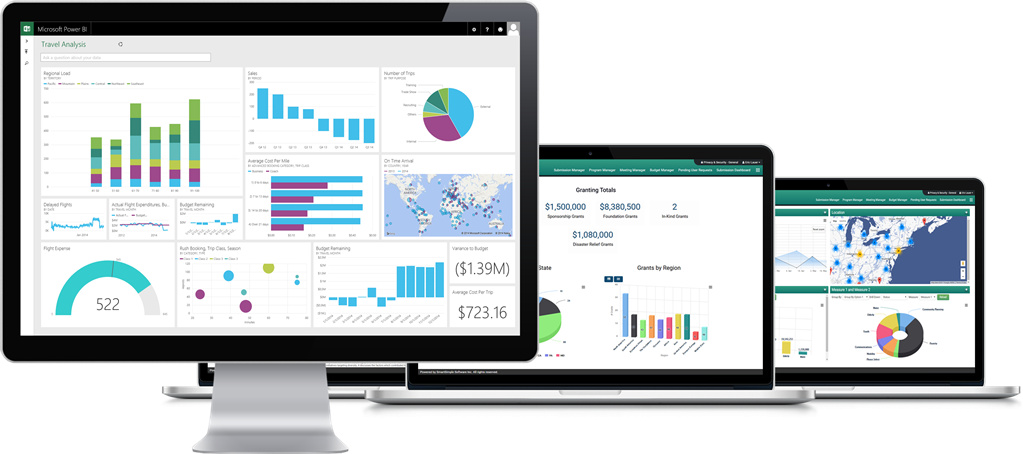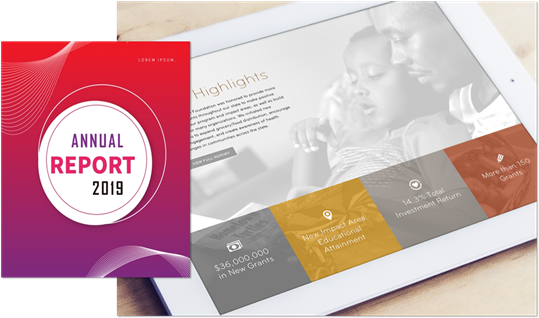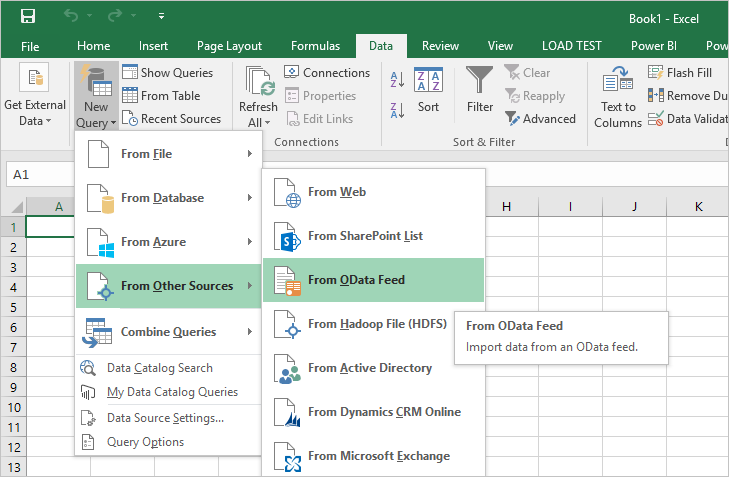3 Ways OData Can Simplify Reporting Your Impact

Guest blog by Geoff Cook, underwritten by SmartSimple
It’s the time of year to celebrate and reflect on the close of another fiscal year. With the start of a new decade, grantmakers must continue to adapt to the changing dynamics of 21st-century philanthropy, such as greater transparency, accessibility, equity, and data-driven decision making. As a result, sharing and evaluating your impact has become more vital than ever.
So, what if you could more efficiently create your impact reports, and have that much more time to actually make change in your community? Imagine what you’d have time to achieve if you could spend less time pulling together reports, triple-checking for errors, and keeping them up to date as they’re finalized. Getting there each year doesn’t have to be such a burden.
Chances are you might not have heard of OData before. That’s a shame. OData could be your new best friend whenever you need to pull your grantmaking reports from one source to another. If you’re looking to share, analyze, or visualize your philanthropic data with less hassle, OData can help open up your reports in better ways for your colleagues, board members, and the wider community to consume. It also can assist with keeping your outcomes continually up to date, so you have one less thing to worry about in your daily work. It’s no wonder OData is short for Open Data Protocol.
So how does OData work?
OData is an open-source technology that’s making it easier to connect your impact reports with other software applications you use, and simplifying the task of sharing that impact with your stakeholders—all faster than you thought possible. In simplified terms, OData has many similarities to the APIs that your favorite app uses to pass data from one app to another in the blink of an eye. Better yet, you don’t need to be a developer or need to know what an API is in order to use it.
Shedding all the technical terms, OData works like the delivery truck that transports freshly baked bread (your real-time grantmaking data) from the bakery (your database or grants management system) to grocery stores for customers (your stakeholders) to conveniently consume. It serves as the vehicle to quickly and easily deliver reporting data to the right people without delay. Few prefer bread that’s gone stale (unless you’re making French toast), so why not turn static reports into ones that continually keep themselves fresh and up to date? OData can help you with that.

Best of all, OData is an open-source technology and an industry-standard, meaning both you and your IT people will love it. OData works seamlessly with a variety of software, like Office 365, Tableau, and grants management systems, bringing all of your impact and reporting information together in one place.
And with that, here are just three possibilities for using OData in your next grant cycle.
1) Feeding data into your board books and annual reports
While OData can’t make board meetings or annual reports go away, it can save you precious time pulling in your year-end totals, especially if you’re working with multiple years’ worth of reports. With more organizations using digital media to boost the interactiveness and visual appeal of their annual reports, OData can jumpstart more creative and dynamic ways of sharing your impact with the public.
Found a clerical error but already shared your board book ahead of the meeting? Not to worry, OData can let you rectify the error at the source and automatically update it within the report. This saves you from resending another version and apologizing to all your board members.

2) Analyze your grantmaking data in Microsoft Excel
Need to take a deeper dive into your grantmaking data, but prefer to use Excel? OData makes pulling reporting data into familiar spreadsheet software easy as 1-2-3. Now you’re off to the races using Pivot Tables and charts for analysis, all within familiar, shareable XLS formats that continually keep themselves up to date when there’s an Internet connection.
Feeding your grantmaking data into Excel using OData is a breeze. Simply toggle OData on within your report’s database, and copy and paste a website-like link into the Data tab. In a few clicks, your report will be imported and kept constantly updated in real-time.

3) Visualize your grantmaking data with Tableau or Power BI
If you’re taking your grantmaking analysis to the next level, or are a data enthusiast, OData can help you save you time working with your real-time data while stepping up your data visualization game. Tools like Tableau and Power BI can prove valuable for organizations that need to look at their data differently, transforming and overlaying their data on a wide array of charting and mapping options.
While data visualization software may not have a place in every foundation, grantmakers should be aware of their value in supporting deeper analysis and strategic decision making.

The possibilities are yours to discover
Many grantmakers these days rely on multiple databases, platforms, and software applications when working with their data. OData can help bridge the gap between them and open up a whole new world of possibilities for sharing your impact to the public. Just think about the amount of time you’ll save not having to start fresh after copying and pasting your data when changes happen. Sharing your outcomes and year-end reports start to sound less of a hassle.
Some grants management solutions charge to enable OData; SmartSimple offers it out of the box at no charge. To learn more about SmartSimple’s grants management software or see it in action, visit www.smartsimple.com.
This story is underwritten by SmartSimple. Reference to specific commercial products, process, service, company, or trademark does not constitute its endorsement or recommendation by IPA.
